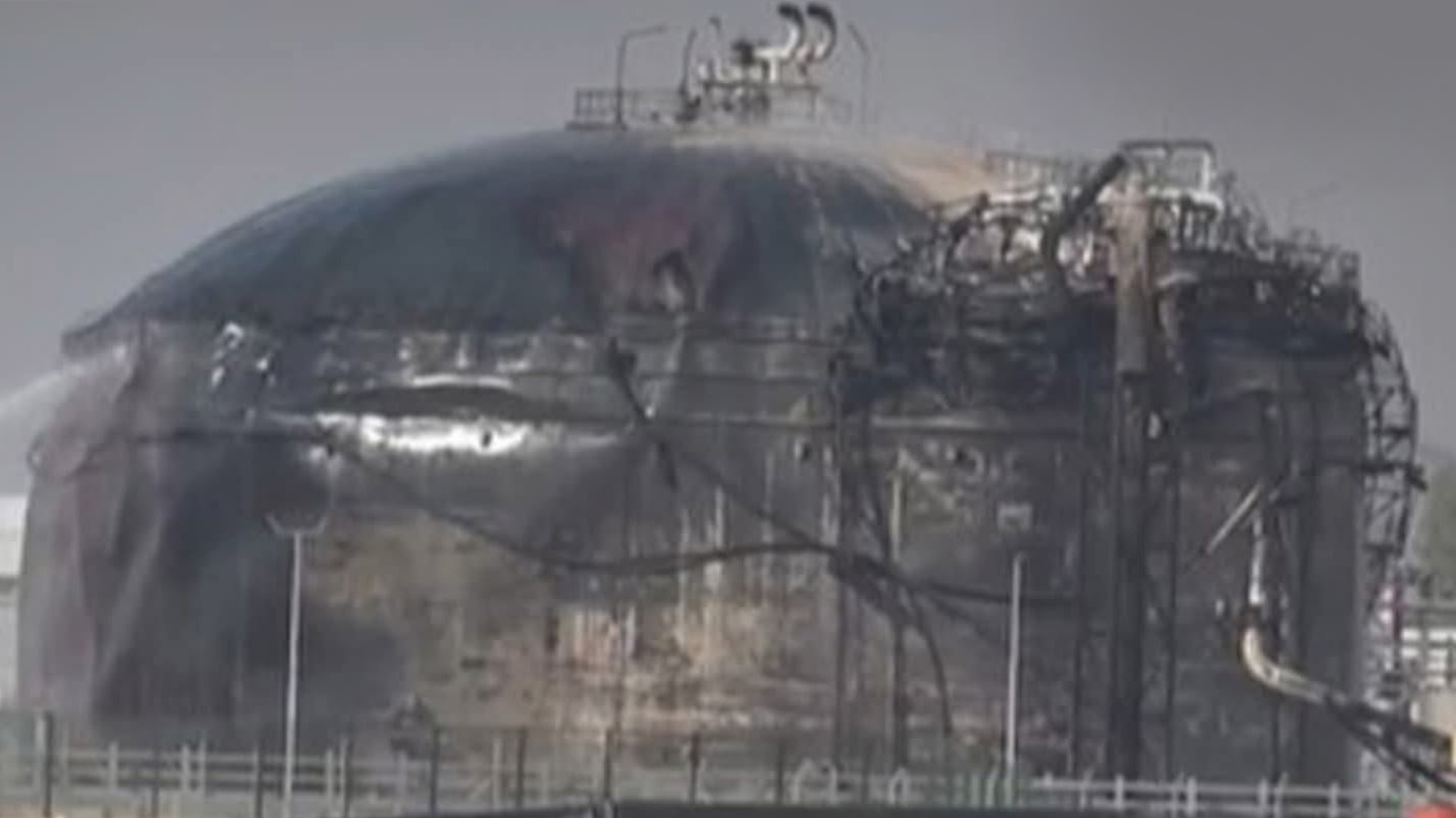Khor Mor strike carried out with 122 mm Grad missile
The Khor Mor gas field was attacked with a 122mm Grad missile launched from 3km away, causing production shutdown and severe power disruptions. Kurdish authorities are investigating and working to restore operations while condemning the assault as terrorism.

ERBIL (Kurdistan24) - The missile attack on the Khor Mor gas field was carried out with a 122 mm Grad rocket, according to information obtained by Kurdistan24, triggering a shutdown that severely disrupted electricity supplies across the Kurdistan Region. A drone was also launched toward the site but crashed outside the facility.
Kurdistan24 has learned that the Wednesday night strike targeting the Khor Mor gas complex was executed using a 122 mm Grad missile, based on the fragments recovered during the initial investigation. In addition to the missile, a drone was launched toward the field, but it fell outside the perimeter without causing damage.
Kurdistan24 correspondent Soran Kameran reported that the joint investigative committee formed to assess the attack has held three meetings so far. Committee head and Iraqi Interior Minister Abdul-Amir al-Shammari pledged that authorities would no longer allow attacks of this kind to recur.
Kameran also confirmed—based on information from a member of the Iraqi Parliament’s Security and Defense Committee—that al-Shammari submitted a formal letter detailing the preliminary findings. According to the letter, the missile was launched from a distance of approximately three kilometers and directed straight toward the gas processing units at Khor Mor.
The same correspondence noted that the drone directed at the installation failed to reach its intended target and crashed outside the field’s boundaries.
During Thursday’s session, al-Shammari stated clearly that the committee requires 72 hours to finalize its measures to prevent future attacks, stressing that such security breaches will not be allowed to happen again.
In a statement issued on Friday, Nov. 28, the Kurdistan Region’s Ministry of Electricity expressed appreciation for the public’s patience during the crisis. The ministry reaffirmed that its teams—working alongside the Ministry of Natural Resources, security forces, and Dana Gas—are taking all necessary steps to bring production back to normal levels and restore electricity to homes, businesses, and factories across the Region.
“This was a terrorist attack against the people of the Kurdistan Region,” the ministry said, noting that all relevant authorities are working intensively to stabilize the situation. It emphasized that public safety remains the government’s top priority and pledged to notify residents immediately of any new developments.
The Kurdistan Region’s Ministry of Natural Resources and Ministry of Electricity convened an urgent joint meeting on Thursday to address the severe electricity shortages caused by the shutdown of Khor Mor following the attack.
A source from the Ministry of Natural Resources told Kurdistan24 that both ministries agreed to take rapid and urgent measures to compensate for lost production and accelerate the restart of gas output, which supplies power-generation stations across the Kurdistan Region.
The shutdown’s impact extended beyond the Region. According to the Iraqi Federal Ministry of Electricity, the national grid lost 1,200 megawatts as a direct result of the halted gas flow. Ministry spokesperson Ahmed Mousa said the loss stemmed from the suspension of energy-purchase contracts with investment power stations in the Kurdistan Region.
Dana Gas, the operator of Khor Mor, confirmed that the missile struck one of the field’s condensate holding units, sparking a fire that crews have since extinguished. While no staff were injured, the company halted operations to conduct a damage assessment and ensure safety before restarting production. Dana Gas said it is coordinating with local authorities to resume supply as soon as possible.
Political reactions intensified throughout Thursday. Iraqi Prime Minister Mohammed Shia al-Sudani condemned the attack in a phone call with Kurdistan Region Prime Minister Masrour Barzani, describing the strike as a “disgraceful” assault targeting all Iraqis. He affirmed the formation of a joint investigative committee to identify and apprehend those responsible.
Senior Kurdish leaders, civil defense teams, and political blocs also issued strong statements denouncing the attack amid concerns over repeated strikes on strategic infrastructure.
The Khor Mor field remains one of Iraq’s most critical energy lifelines, providing gas to several power stations in the Kurdistan Region and contributing significantly to the federal grid. The halt in production has placed both Erbil and Baghdad under urgent pressure to stabilize the electricity sector while technicians and investigators work simultaneously to restore operations.
As investigations continue and emergency teams work around the clock, both the Kurdistan Regional Government and the federal authorities have pledged swift action to restore stability, prevent further attacks, and bring the Khor Mor field back online—an essential step toward safeguarding Iraq’s energy security.